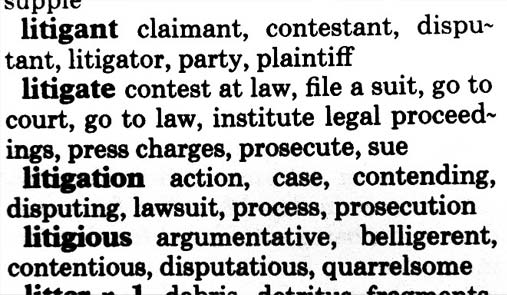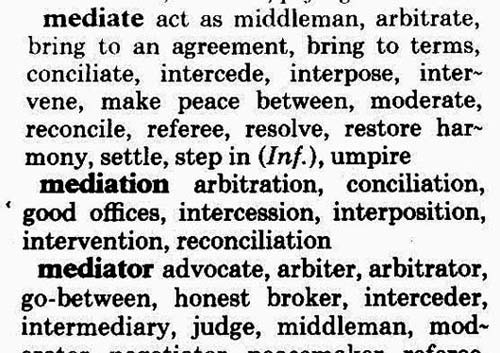We are a small set of barristers from a variety of backgrounds, specialising mainly in advocacy and advice on family law. Some of our barristers also practice in discrete areas of trust law, particularly in relation to property ownership not regulated by the Matrimonial Causes Act 1979.
Barristers regulated by the Bar Standards Board.
A note of caution: many clients leave it to the last minute to consult a lawyer only for the lawyer to find that the client would have had a much stronger case if contact had been made sooner. A lawyer’s most potent contribution can be at an early stage.
We continue to provide barristers’ traditional services to solicitors.
Even when litigation is not contemplated, you may sometimes need legal advice or professionally drafted documents. We are happy to advise and to draft contracts, trust instruments, letters, etc, in relation to matters within our fields of expertise.
Adoption
Children - contact
Child abduction
Domestic abuse
Cohabitation
Children - residence
Matrimonial property
Enforcement
Public law children
Pre-nuptial agreements
Matrimonial finance
Children - maintenance
International enforcement
Divorce
Guardianship
Karin was called to the Bar in 2005, having had a successful career in Information Science and Knowledge Management.
Karin’s practice is in family law, primarily in:...
Karin was called to the Bar in 2005, having had a successful career in Information Science and Knowledge Management.
Karin’s practice is in family law, primarily in:
She has a particular interest in international cross-border financial disputes and enforcement, for example, cases under the Maintenance Regulation.
She also specialises in Equity and Trusts.
Memberships: Family Law Association, Criminal Bar Association.
Mark was called to the Bar in 2016, having had a previous career as a professional musician.
Mark is a family law practitioner...
Mark was called to the Bar in 2016, having had a previous career as a professional musician.
Mark is a family law practitioner, with significant experience in:
Mark has significant experience in cases involving allegations of substance misuse, domestic violence, mental health issues, and emotional and physical abuse. He has a particular interest in representing vulnerable adults.
Mark's previous career required him to travel extensively and he brings to his practice an open mind and a wealth of life experience, which reflects in his heightened empathy with his clients. Mark exercises a high degree of professionalism and a determination to robustly advance his clients' interests at all times.
Mark accepts instructions from members of the public under the Direct Access Scheme. Please click here for more information.
Memberships: Middle Temple, the Family Law Bar Association.
Stephen has been a barristers' clerk since 1969, including a five-year spell as a costs draftsman. He is hugely experienced, with a large portfolio of useful contacts, and has a great rapport with solicitors and lay clients.
Stephen has been a barristers' clerk since 1969. including a five-year spell as a costs draftsman. He is hugely experienced, with a large portfolio of useful contacts, and has a great rapport with solicitors and lay clients.
Please feel free to contact Stephen to discuss available options for your legal matter.
Direct Access
Until relatively recently, members of the public could only instruct a barrister if they went to see a solicitor first. Having to instruct both a solicitor and a barrister could be very expensive. This restriction was removed in 2004 and, in many cases, a member of the public can now directly instruct a barrister without the need to instruct a solicitor first.
At the Chambers of DJ Simpson, we have a commitment to access to justice and believe that direct access is an essential part of our commitment to promote efficient access to justice. Without direct access many people would be unable to afford expert advice and representation in court and, understandably, some people will wish to take steps to reduce their legal fees. Whatever the reasons for instructing counsel on a direct access basis, our aim is to make the process as simple and cost effective for you as possible.
The potential benefits of instructing us directly are numerous, including:
If you instruct us directly, we can give you advice, draft documents on your behalf and represent you in court. The ‘Our Direct Access Work’ section below identifies the areas in which we work and how we can help you. The ‘How to instruct us’ section below explains how easy it is to directly instruct a barrister. Further guidance, on the direct access scheme can be found here: Bar Standards Board 'Public Access Guidance for Lay Clients'.
OUR DIRECT ACCESS WORK
In an appropriate case we offer advice, drafting and representation in the following areas of family law:
Children (private law)
We cover all the issues and disputes that may arise in respect of children including matters of parental responsibility, child arrangements (previously known as ‘residence and contact’ or ‘custody and access’), prohibited steps orders, specific issue orders special guardianship and wardship proceedings.
Domestic violence and injunctions
We provide advice and representation in all aspects of personal protection, including non-molestation orders and occupation orders for both applicants and respondents at all stages of the court process, from initial applications to final hearings.
Children (public law)
Whilst legal aid is often available for public law proceedings, we have experience of acting for those who cannot obtain legal aid, such as for relatives wanting or required to be or involved in proceedings. We have significant expertise in very difficult and sensitive public law cases throughout the process, from the start of care proceedings to applications for adoption.
Divorce, finance and property
We can also advise and assist you with the financial aspects of the breakdown of your marriage or relationship and provide assistance with divorce and finances following separation. We may also be able to assist you with cohabitation disputes about the ownership of property and cases dealing with finances for children, including between unmarried couples (‘Schedule 1’ cases) and Child Maintenance Service disputes.
International family law
We also have experience in dealing with the international aspects of family law, from cross-border movement of children, including permission to take children abroad temporarily or permanently and child abduction and return orders in the High Court.
Appeals
We can also give you advice about the merits of appealing any decision of the court and can help you with drafting the relevant documents (grounds of appeal and skeleton arguments) and represent you at the appeal hearing.
How to instruct
Instructing a barrister is simple and usually completed in 3 easy steps:
HOW TO INSTRUCT US ON A DIRECT ACCESS BASIS.
Step 1 – Initial Consultation
Please call our clerk Stephen Herbert on 020 7099 9257 or email him at sjh@cdjs.uk with your enquiries, especially those of an urgent nature. This will help us to assess the nature of the assistance that we can provide and the barrister best suited for you. Once we have your details, we will assess your case and in non-urgent cases endeavour to respond within 2 working days. At such time, depending on the suitability of your case, we will arrange for a free Initial Consultation (usually by telephone) with an expert family law barrister.
At the Initial Consultation you will outline the problems that you have, show us whatever documents you have and tell us what you would like us to do. At the Initial Consultation we will discuss your case in broad terms in order to identify what services you need us to perform and the timescale for performing those services. We will also deal with whether your case is suitable for public access. If it is not, we will do our best to identify a suitable solicitor to meet your needs. You will be asked to provide your driving licence or your passport and a recent utility bill. We will take and retain copies of these documents to ensure that we comply with any relevant statutory obligations. You should also provide at this meeting (1) any court papers (2) any documents filed at court and (3) any relevant correspondence with the other side or their lawyers. The Initial Consultation will usually last around 45 minutes.
Step 2 – Quote
If your case is suitable for direct access, you will be provided with a quote for the cost of the work that needs to be carried out on your behalf. The quote is usually provided after the Initial Consultation. Sometimes in order to arrive at a fee you will be asked to provide the barrister with copies of documents that your barrister will need to read.
Step 3 – Contract
If you are happy with the fee that is quoted, we will send you a client care letter confirming the barrister who will be acting for you, the work to be done, the fee and the fee structure for the service. The letter will also set out the terms and conditions under which the barrister will act for you. The client care letter forms the contract between you and your barrister. You will not be liable for any fees until you sign the client care letter. Once you have returned the signed client care letter to us and complied with the payment obligations contained in the letter, the barrister will begin to act on your behalf.
SERVICES PROVIDED BY DIRECT ACCESS
Advice
Barristers are best placed to provide effective and realistic advice on all your family law concerns. We can provide you with advice, whether face-to-face in conference or in writing on family law related issues. Sometimes at the start of a dispute a simple advice will be called for, providing guidance on the range of options available and the evidence to be obtained. In complex cases, a more detailed fully comprehensive opinion on the merits of a case may be required. Sometimes, a second opinion or advice on the merits of an appeal will be required. The nature of any advice that is required will be discussed at the Initial Consultation.
Legal representation in court
As barristers, our life-blood is the persuasive and effective representation of our client’s best interests in court. We are able to make representations on your behalf at court, at all stages of the litigation process and at every level of court throughout the country. We do, however, recommend that you instruct us well in advance of any court hearing to ensure that we can properly advise on the merits of any case and that any further evidence required can be obtained.
Our court work includes:
Drafting legal documents
Barristers appreciate the importance of precision and the full legal consequences of language used in documents. Our barristers can draft all manner of documents on your behalf, such as pre-nuptial and separation agreements, letters (including open and without prejudice offers to settle), Form Es, questionnaires, consent orders and, where appropriate, witness statements.
MAKE AN ENQUIRY
Before a barrister can decide whether or not to assist you we need you to supply further information and details. In the first instance it is usually best to send an email to our clerk Stephen Herbert (sjh@cdjs.uk) with DIRECT ACCESS: ENQUIRY in the subject line and including the following information
All enquiries will be treated as strictly confidential.
First Name:
Last Name:
Address:
Telephone:
Mobile:
Email:
A brief description of what issues you seek assistance for:
Have you already been to see a solicitor, barrister or legal advisor with regards to this matter? Yes/No
If yes, please provide their details:
Have proceedings been issued? Yes No: If yes, please provide details:
Is there a court hearing date or any other deadline? Yes No: If yes, please provide details
Do you have a particular barrister that you wish to instruct? Yes No - I require guidance: If yes, please provide details:
Are you in receipt of legal aid? Or previously been in receipt of legal aid? Yes No: If yes, please provide details:
Please provide any further brief details of your matter not mentioned above and which you think may be relevant:
Please indicate how you heard about our services:
Service Required
Chambers of D J Simpson provides assistance in the following areas of Family Law, please indicate which area(s) you are seeking assistance with
Advice:
Legal representation:
Drafting legal documents:
Other:
Please note: Your name and email will be added to our mailing list. Any other data you have supplied will also be stored. Please view our privacy policy for more information on how we protect and manage your submitted data.
Standard Contractual Terms:
Fees:
Privacy and data protection:
Complaints procedure
Legal Ombudsman
BSB barristers register


Equality and Diversity:
Harassment:
Recruitment
We are interested in hearing from barristers at all levels who are practising or wish to practise in family law. All communications are treated in the strictest confidence.
Please contact Karin Tampion on kt@cdjs.uk

T: 020 7099 9257
F: 020 7099 2454
E: sjh@cdjs.uk
DX: Please note that we are no longer on the DX